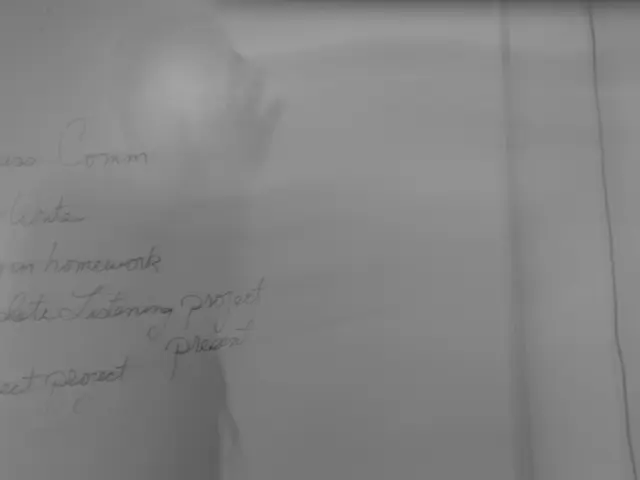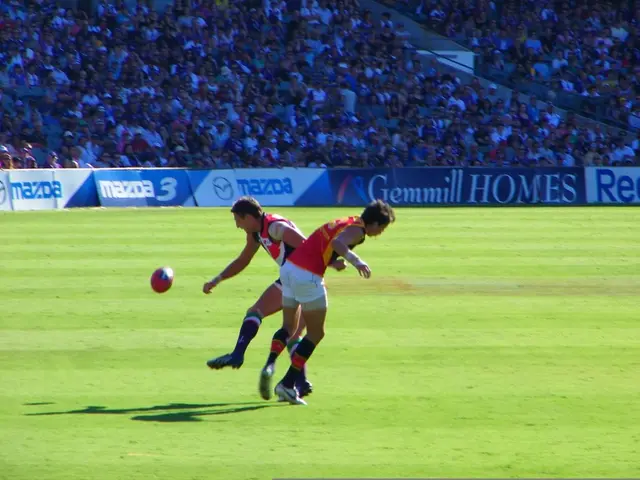South Korean residents file lawsuit against ex-president for inflicting 'emotional distress'
The Dramatic Fall of Former President Yoon Suk Yeol
The political landscape in South Korea has been buzzing over the legal troubles of its former president, Yoon Suk Yeol.
Once seated in the highest office, he now finds himself standing trial for insurrection, all following his brief and controversial declaration of martial law on Dec. 3. This action propelled him to face the Constitutional Court, from which he was removed, and then to the Seoul Central District Court.
There's a group of 105 disgruntled citizens suing Yoon for emotional damages that stemmed from his power grab. Their lawsuit demands a compensation amount of 100,000 won ($73) per individual plaintiff. The first hearing is due later this month.
The complaint accuses Yoon of unlawfully infringing on the plaintiffs' basic rights, such as the freedom to their lives, bodies, and human dignity. The suit claims these actions in addition to causing fear, anxiety, discomfort, and shame.
Behind this fiery legal battle stands Lee Gum-gyu, a 52-year-old lawyer who has made a name for himself by taking on powerful figures in impeachment trials. His adversaries include the former conservative president Park Geun-hye and, most notably, Yoon himself.
During Yoon's impeachment trial at the Constitutional Court, Lee used his closing statement to share his fears for his son, a military conscript. He felt immense terror at the prospect of his son being deployed to uphold the martial law order.
Symbolizing the people's resistance, Lee purposefully drafted the complaint with exactly 105 plaintiffs—the number of pro-Yoon legislators who boycotted his impeachment. The choice of compelling compensation of 100,000 won per plaintiff was a calculated decision to send a strong message.
While the success rate of emotional damages claims against former presidents isn't high, Lee has renewed hopes for his lawsuit against Yoon. He reasons that the gravitas of the infringed rights offers a marginally improved chance compared to the lawsuit filed against Park, which was centered around corruption allegations.
Some legal experts share Lee's optimism. "I am curious whether this will work or not," comments a judge based in Seoul who wished to remain anonymous. "Under current jurisprudence, I don't think it's entirely impossible."
South Korea's history with authoritarianism heightens the claim to emotional distress, as the country has only recently climbed out from under dictatorship. The memory of political repression and violence remains fresh in the minds of the South Korean populace.
The last declaration of martial law dated back to May 1980, when the Chun Doo-hwan military junta brutally suppressed pro-democracy protests in Gwangju, leading to the deaths of more than 160 civilians. Some of the violence was caught on camera, etching traumatic images into the collective psyche of the nation.
Lee Gum-gyu personally experienced the military junta's presence in Gwangju as a child, recounting the distressing sight of a tank rolling down the street behind his house. The lingering trauma manifested in the hearts and minds of South Koreans, generating widespread fear and anxiety throughout the nation.
Another plaintiff, Han Ki-chang, a real estate agent, refers to the stress-fueled insomnia he suffered during the martial law period, coining the term "martial law insomnia." The term has spread throughout the media, as older South Koreans share stories of its profound impact on their mental well-being.
Other groups are preparing their own emotional damages lawsuits against the former president, indicating growing discontent among the citizens. Lee, the attorney, anticipates a surge in suits as people become aware of the complaint and seek to participate. If successful, the case might pave the way for every South Korean citizen to claim damages, amounting to a potential financial burden of $380 million (assuming compensation remains at $7.30 per person).
- Bonus Insight: As of June 2025, the chances of success for these emotional damages claims against former president Yoon Suk Yeol remain contradictory. The South Korean judiciary has been historically cautious or dismissive of personal claims against ex-presidents, especially those that overlap with political or constitutional crises. However, the specific focus of Yoon's lawsuit on the direct and specific impact of the martial law decree on the plaintiffs' psychological well-being offers a different perspective. The outcome will hinge on the interpretation of causation and the nature of harm under South Korean tort law. Previous court rulings, such as the dismissal of similar claims against former President Park Geun-hye, indicate a challenging battle ahead, but each case is judged on its own merit.
- Related Readings:
- How a former factory worker rose to South Korea's presidency
- How South Korea's next president wants to deal with Trump and his tariffs
- South Korea's Constitutional Court removes President Yoon Suk Yeol from office
- Within the heart of the South Korean real estate sector, there is growing discontent and anticipation towards the lawsuits that demand emotional damages from former President Yoon Suk Yeol, following his controversial martial law declaration.
- As the legal proceedings against Yoon progress, policy-and-legislation and politics remain key areas of focus, with Lee Gum-gyu, a renowned lawyer, leading the charge against the former president.
- In examining the landscape of general news, the emotional damages claims against Yoon carry significant implications, potentially resulting in a financial burden of $380 million, should every South Korean citizen choose to participate in such litigation.







